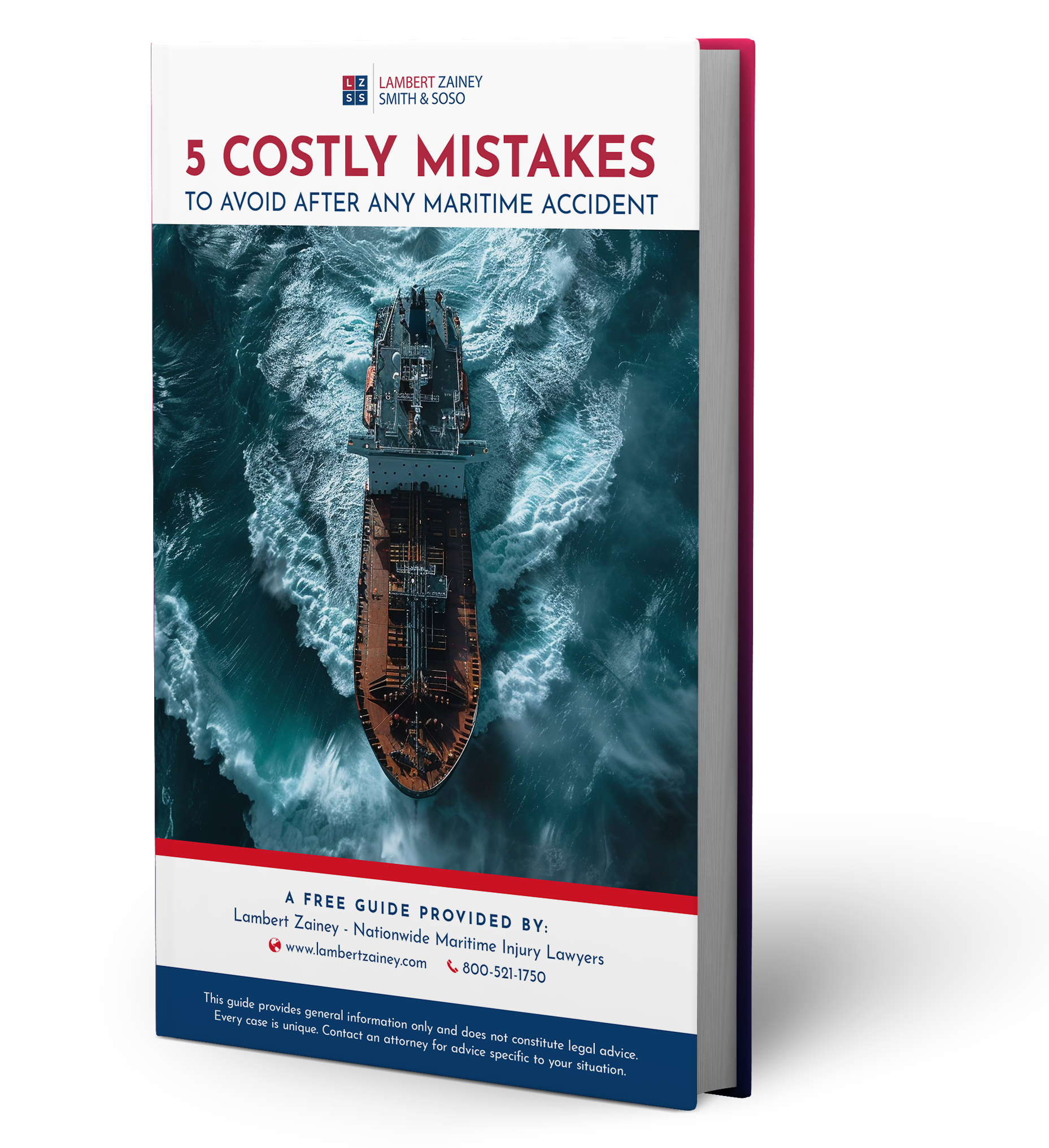The Problem Facing Maritime Whistleblowers
Maritime Whistleblowers face a difficult decision: report an illegal activity to the government or risk criminal prosecution for participating in the illegal activity. Cayce Peterson, managing partner of Lambert Zainey, recently discussed these issues in a panel presentation to members of the Maritime & International Law Committee of the New Orleans Bar Association. The panel addressed issues for maritime whistleblowers and their employers regarding the consequences of dumping oil contaminated water overboard. For the maritime whistleblower, maritime laws, environmental laws and even international laws exist to protect and, in many cases, reward those who come forward with information regarding illegal oily water disposal.

What Laws Protect Maritime Whistleblowers?
For workers in the offshore oil and gas industry off the coast of Louisiana, the Outer Continental Lands Shelf Act (“OCSLA”) applies Louisiana state law as surrogate federal law. Maritime whistleblowers should report environmental violations to their supervisors or to the Bureau of Safety and Environmental Enforcement (“BSEE”). If any action is taken against the reporting offshore worker, that worker can make a claim for retaliation using the Louisiana Environmental Whistleblower Act (“LEWA”). The LEWA allows the worker to recover back pay, front pay, triple damages, attorney fees and costs of bringing a lawsuit.
For blue water maritime whistleblowers, the Act to Prevent Pollution from Ships (“APPS”) protects workers who report violations to the United States Coast Guard. These violations usually involve misrepresentation in a ship’s Oil Record Book, which tracks bilge discharges. Violations can also include reports of illegal oily water discharge directly into the water. Because the risk to the maritime whistleblower is so great, the government provides a bounty to the reporting individual up to 50% of the total fines paid by the offending party.
Get Our FREE Guide to Protect Your Claim
What you do after an accident is critical. Insurance companies will try to get you to make mistakes that can hurt your claim. Our free guide can help you avoid these traps.
Download our complimentary guide: “5 Costly Mistakes to Avoid After Any Maritime Accident” to arm yourself with the knowledge you need to protect your rights.
At Lambert Zainey, we often field questions from concerned offshore workers and maritime whistleblowers who want to know their rights. Knowing your rights is key to understanding how to proceed if you have witnessed environmental violations offshore or on the high seas. Contact us any time for confidential advice, and if necessary, skilled representation in maritime whistleblower cases.
The Problem Facing Maritime Whistleblowers
Maritime Whistleblowers face a difficult decision: report an illegal activity to the government or risk criminal prosecution for participating in the illegal activity. Cayce Peterson, managing partner of Lambert Zainey, recently discussed these issues in a panel presentation to members of the Maritime & International Law Committee of the New Orleans Bar Association. The panel addressed issues for maritime whistleblowers and their employers regarding the consequences of dumping oil contaminated water overboard. For the maritime whistleblower, maritime laws, environmental laws and even international laws exist to protect and, in many cases, reward those who come forward with information regarding illegal oily water disposal.

What Laws Protect Maritime Whistleblowers?
For workers in the offshore oil and gas industry off the coast of Louisiana, the Outer Continental Lands Shelf Act (“OCSLA”) applies Louisiana state law as surrogate federal law. Maritime whistleblowers should report environmental violations to their supervisors or to the Bureau of Safety and Environmental Enforcement (“BSEE”). If any action is taken against the reporting offshore worker, that worker can make a claim for retaliation using the Louisiana Environmental Whistleblower Act (“LEWA”). The LEWA allows the worker to recover back pay, front pay, triple damages, attorney fees and costs of bringing a lawsuit.
For blue water maritime whistleblowers, the Act to Prevent Pollution from Ships (“APPS”) protects workers who report violations to the United States Coast Guard. These violations usually involve misrepresentation in a ship’s Oil Record Book, which tracks bilge discharges. Violations can also include reports of illegal oily water discharge directly into the water. Because the risk to the maritime whistleblower is so great, the government provides a bounty to the reporting individual up to 50% of the total fines paid by the offending party.
Get Our FREE Guide to Protect Your Claim
What you do after an accident is critical. Insurance companies will try to get you to make mistakes that can hurt your claim. Our free guide can help you avoid these traps.
Download our complimentary guide: “5 Costly Mistakes to Avoid After Any Maritime Accident” to arm yourself with the knowledge you need to protect your rights.
At Lambert Zainey, we often field questions from concerned offshore workers and maritime whistleblowers who want to know their rights. Knowing your rights is key to understanding how to proceed if you have witnessed environmental violations offshore or on the high seas. Contact us any time for confidential advice, and if necessary, skilled representation in maritime whistleblower cases.








